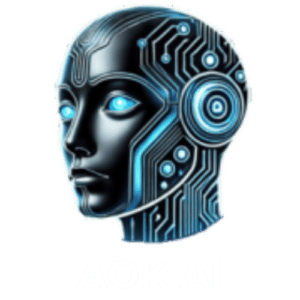Why Every Entrepreneur Needs AI Tools in 2025
Entrepreneurship in 2025 isn’t about who works the longest hours or who hustles the hardest — it’s about who adapts the fastest. The business landscape has shifted. AI is no longer a futuristic luxury or a Silicon Valley experiment. It is now the engine powering agile startups, lean teams, and solo founders around the world.
To ignore Artificial Intelligence today is to fall behind tomorrow. The tools are smarter, faster, and more accessible than ever before. And for entrepreneurs who want to stay ahead of the curve, AI isn’t optional. It’s fundamental.
This article explores how AI is transforming modern entrepreneurship — not in theory, but in practice.
Time Is No Longer the Bottleneck
Every entrepreneur knows the pain of being pulled in twenty directions at once. There’s never enough time to handle client calls, write marketing content, manage your calendar, or follow up on invoices. That’s where AI flips the script.
Tools like Calendly AI can now manage your schedule without constant back-and-forth emails. AI chatbots respond to customer queries instantly, even while you sleep. Invoice generators and smart accounting platforms handle your billing automatically — freeing up hours that used to disappear into admin tasks.
The smartest entrepreneurs today aren’t working 18-hour days. They’re building systems powered by AI that give them time back to think, create, and lead.
Clarity from Chaos: Data-Driven Decisions Made Simple
The old way of doing business relied on gut feelings, intuition, or copying what the competition was doing. But in 2025, data tells the truth — and AI helps you hear it clearly.
With tools like Tableau, Google Analytics 4 with AI Insights, and Pecan AI, entrepreneurs can tap into real-time analytics to understand exactly what’s working and what’s not. From identifying which marketing campaign is generating the most ROI to spotting a drop in user retention before it becomes a crisis — AI transforms raw data into business intelligence.
You don’t need to be a data scientist to make data-driven decisions. You just need the right tools — and the willingness to listen.
Lean Teams, Lower Costs, Bigger Impact
Hiring is expensive. Managing people is time-consuming. And payroll can crush a young business. AI offers a radically different model.
Customer service teams are now being supplemented or replaced by smart AI chatbots. Content creation, once outsourced to freelancers, is now handled by AI copywriters like Jasper or ChatGPT. Customer relationship management, email follow-ups, and lead scoring? All automated by CRMs like HubSpot AI or Zoho Zia.
The result is powerful: entrepreneurs can now scale their reach and impact without building bloated teams or burning through cash. With AI, a one-person brand can compete with ten-person teams — and win.
Personalisation That Builds Loyalty
Modern consumers don’t just want good service. They expect personalised experiences — recommendations tailored to their interests, emails that feel like they were written just for them, and ads that understand what they’re looking for.
AI delivers this at scale. Tools like Klaviyo AI allow you to send hyper-personalised email campaigns that respond to each user’s behaviour. Dynamic ad platforms like Adzooma can generate custom creatives on the fly based on user data.
This kind of personalisation isn’t just nice to have — it drives results. Higher open rates. More conversions. Deeper customer loyalty. It’s how small businesses create big emotional connections.
Staying Agile in a Rapidly Changing Market
If 2020 taught the business world anything, it’s that change can come fast. In 2025, that pace has only accelerated. New competitors emerge daily. Customer behaviour shifts overnight. Economic uncertainty is the norm.
Entrepreneurs who use AI are better equipped to pivot quickly. From real-time feedback loops on product performance to smart e-commerce recommendations that respond to market conditions, AI keeps your business agile.
During recent economic turbulence, retail brands that integrated AI into their product recommendation engines saw customer retention increase by over 30%. They didn’t guess what their audience needed — their AI tools told them.
A Case Study in Efficiency
Consider a US-based digital agency that, in 2024, decided to automate as much of their operations as possible using AI. They implemented automated onboarding systems for new clients, used project management bots to delegate tasks, and deployed AI reporting tools to generate client reports weekly.
The result? Over 20,000 working hours saved in a single year. That’s equivalent to hiring ten full-time employees — without the cost, overhead, or training.
These aren’t edge cases anymore. This is the new standard.
Conclusion: The Future Is Already Here
Entrepreneurs who succeed in 2025 are the ones who learn to think differently. They no longer ask “Can AI help me?” — they ask “How fast can I integrate it into every part of my business?”
Artificial Intelligence isn’t a trend. It’s the new baseline.
The tools are available. The use cases are proven. The success stories are everywhere.
So the only question left is this: will you use AI to work faster, grow smarter, and lead the next generation of business? Or will you get left behind?
Because in 2025, the winners aren’t the ones doing everything manually. They’re the ones who’ve embraced the machine — and built something extraordinary with it.
